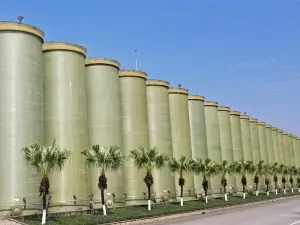
-
 Afrikaans
Afrikaans -
 Albanian
Albanian -
 Amharic
Amharic -
 Arabic
Arabic -
 Armenian
Armenian -
 Azerbaijani
Azerbaijani -
 Basque
Basque -
 Belarusian
Belarusian -
 Bengali
Bengali -
 Bosnian
Bosnian -
 Bulgarian
Bulgarian -
 Catalan
Catalan -
 Cebuano
Cebuano -
 China
China -
 China (Taiwan)
China (Taiwan) -
 Corsican
Corsican -
 Croatian
Croatian -
 Czech
Czech -
 Danish
Danish -
 Dutch
Dutch -
 English
English -
 Esperanto
Esperanto -
 Estonian
Estonian -
 Finnish
Finnish -
 French
French -
 Frisian
Frisian -
 Galician
Galician -
 Georgian
Georgian -
 German
German -
 Greek
Greek -
 Gujarati
Gujarati -
 Haitian Creole
Haitian Creole -
 hausa
hausa -
 hawaiian
hawaiian -
 Hebrew
Hebrew -
 Hindi
Hindi -
 Miao
Miao -
 Hungarian
Hungarian -
 Icelandic
Icelandic -
 igbo
igbo -
 Indonesian
Indonesian -
 irish
irish -
 Italian
Italian -
 Japanese
Japanese -
 Javanese
Javanese -
 Kannada
Kannada -
 kazakh
kazakh -
 Khmer
Khmer -
 Rwandese
Rwandese -
 Korean
Korean -
 Kurdish
Kurdish -
 Kyrgyz
Kyrgyz -
 Lao
Lao -
 Latin
Latin -
 Latvian
Latvian -
 Lithuanian
Lithuanian -
 Luxembourgish
Luxembourgish -
 Macedonian
Macedonian -
 Malgashi
Malgashi -
 Malay
Malay -
 Malayalam
Malayalam -
 Maltese
Maltese -
 Maori
Maori -
 Marathi
Marathi -
 Mongolian
Mongolian -
 Myanmar
Myanmar -
 Nepali
Nepali -
 Norwegian
Norwegian -
 Norwegian
Norwegian -
 Occitan
Occitan -
 Pashto
Pashto -
 Persian
Persian -
 Polish
Polish -
 Portuguese
Portuguese -
 Punjabi
Punjabi -
 Romanian
Romanian -
 Russian
Russian -
 Samoan
Samoan -
 Scottish Gaelic
Scottish Gaelic -
 Serbian
Serbian -
 Sesotho
Sesotho -
 Shona
Shona -
 Sindhi
Sindhi -
 Sinhala
Sinhala -
 Slovak
Slovak -
 Slovenian
Slovenian -
 Somali
Somali -
 Spanish
Spanish -
 Sundanese
Sundanese -
 Swahili
Swahili -
 Swedish
Swedish -
 Tagalog
Tagalog -
 Tajik
Tajik -
 Tamil
Tamil -
 Tatar
Tatar -
 Telugu
Telugu -
 Thai
Thai -
 Turkish
Turkish -
 Turkmen
Turkmen -
 Ukrainian
Ukrainian -
 Urdu
Urdu -
 Uighur
Uighur -
 Uzbek
Uzbek -
 Vietnamese
Vietnamese -
 Welsh
Welsh -
 Bantu
Bantu -
 Yiddish
Yiddish -
 Yoruba
Yoruba -
 Zulu
Zulu
molded fiberglass
The Versatility and Advancements of Molded Fiberglass
Molded fiberglass has emerged as a transformative material across various industries, renowned for its strength, durability, and lightweight nature. Initially gaining popularity in the mid-20th century, molded fiberglass has since evolved, finding applications in automotive, aerospace, construction, and recreational products. This composite material is created by combining fiberglass strands with resin, which is then molded into specific shapes. The result is a product that not only offers substantial structural integrity but is also resistant to corrosion, making it suitable for both indoor and outdoor use.
One of the key advantages of molded fiberglass is its exceptional strength-to-weight ratio. While metal and wood can be heavy and cumbersome, molded fiberglass provides an alternative that is easier to handle without compromising on strength. This characteristic is especially beneficial in the automotive and aerospace sectors, where every ounce matters. The lightweight nature of molded fiberglass allows for improved fuel efficiency and performance, contributing to more sustainable transportation solutions.
Moreover, molded fiberglass is highly customizable. Manufacturers can create intricate designs and various shapes that meet specific requirements. This adaptability is particularly advantageous in industries like construction, where molded fiberglass can be used for both structural components and aesthetic elements. From architectural facades to molded sinks, the versatility of this material enables designers to push boundaries and create innovative solutions.
molded fiberglass

The environmental impact of molded fiberglass is also worth noting. Unlike traditional materials that may require extensive resources to process, fiberglass can be produced with lower energy consumption. Additionally, advancements in recycling technologies are making it possible to reclaim and reuse fiberglass products, further mitigating environmental concerns. Companies are increasingly focusing on sustainable practices, ensuring that while they innovate, they also consider their environmental footprint.
Recent advancements in technology have further improved the production processes of molded fiberglass. Techniques such as vacuum infusion and resin transfer molding allow for greater efficiency and higher-quality finishes. These innovations not only speed up the manufacturing process but also reduce waste, aligning with the global push for sustainability.
In conclusion, molded fiberglass has established itself as a versatile and reliable material within various industries. Its strength, lightweight nature, customization potential, and eco-friendly advancements make it an attractive option for manufacturers and consumers alike. As technology continues to progress, molded fiberglass is likely to evolve further, paving the way for even more applications and innovations in the future. With its myriad benefits, molded fiberglass is indeed shaping the landscape of modern manufacturing and design.
Latest news
-
High-Quality Fiberglass Car Bodies Durable GRP Car & Boat Body SolutionsNewsJul.08,2025
-
High-Quality Fiberglass Dual Lamination Product Manufacturer Durable FRP & GRP Dual Lamination SolutionsNewsJul.08,2025
-
Rectangular Tank with Dimensions for GRP Calculation Custom Fiberglass GRP Rectangular TanksNewsJul.07,2025
-
High-Quality Fiberglass Weir Custom FRP Weir & Fiberglass Tanks ManufacturerNewsJul.07,2025
-
CPVC FRP Pipe A Reliable Choice for Industrial Applications High Strength & Corrosion ResistanceNewsJul.07,2025
-
Fiberglass Scrubber for Effective Cleaning and Stain Removal – Superior Performance in Various ApplicationsNewsJul.06,2025









